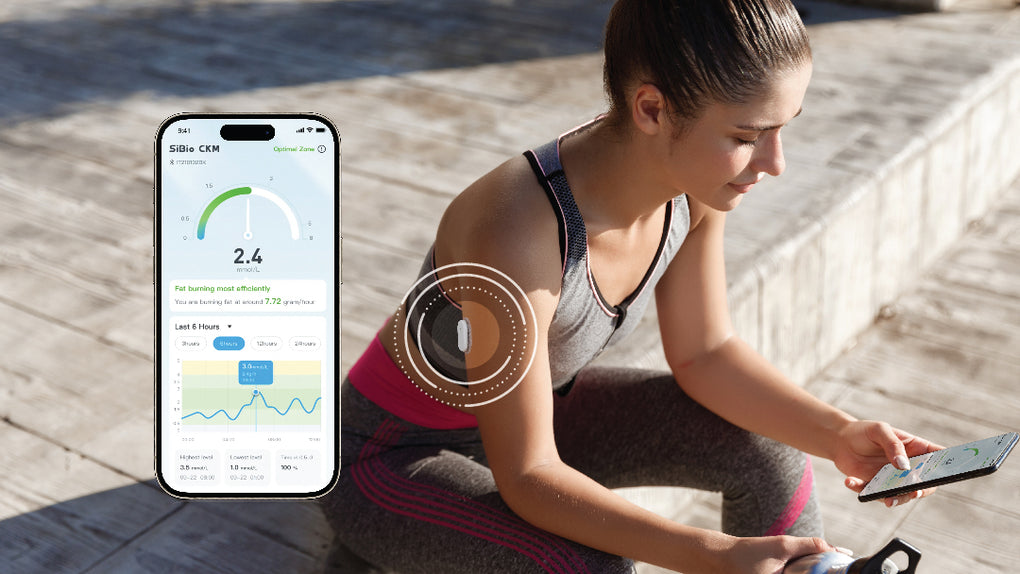Rebooting Your Ketogenic Diet Post-Holiday: A Guide to Getting Back on Track

The holiday season ushers in abundance, joy, and cherished moments with loved ones, often accompanied by indulgence in treats that veer away from healthy eating habits. As the new year unfolds, it's not uncommon to feel a bit off track with nutrition and fitness goals, having navigated weeks filled with feasts, snacks, and social gatherings centered around food. But fear not – with some guidance, embarking on a keto reboot to get back into ketosis is entirely achievable, setting the stage for a clean and rejuvenated start to 2024.

Photo by Towfiqu barbhuiya on Unsplash
- Gradual Reduction of Carbohydrates
Instead of diving headfirst into strict keto, consider a gradual reduction of carbohydrate intake over a few days. This approach can help your body adjust more smoothly, minimizing the potential discomfort of sudden carb withdrawal. Begin by cutting down on high-carb foods while increasing your intake of low-carb, nutrient-dense options.
- Focus on Whole, Nutrient-Dense Foods
Center your meals around whole, nutrient-dense foods. Opt for lean proteins like poultry, fish, and tofu. Fill your plate with an abundance of leafy greens, cruciferous vegetables, and other low-carb options. Incorporate healthy fats such as avocados, olive oil, and nuts to promote satiety and support your body's nutritional needs.

Photo by Toa Heftiba on Unsplash
- Hydration and Intermittent Fasting
Staying hydrated is crucial during this transition. Water not only helps flush out toxins but also aids in controlling hunger. Consider incorporating intermittent fasting to expedite the process of entering ketosis. Start with a modest fasting window, such as 12 hours, and gradually extend it based on your comfort level.
- Light Exercise to Support Metabolism
Engaging in light exercise can support your metabolism and enhance the transition back into ketosis. Incorporate activities such as walking, yoga, or gentle cardio exercises. As your body adapts to increased physical activity, you'll likely find it easier to maintain your keto momentum.

Photo by Chander R on Unsplash
- Monitor Ketone Levels and Adjust Portions
In the process of rebooting your ketogenic diet post-holidays, precision is key, and SiBio KS1 Continuous Ketone Monitoring (CKM) System proves to be an invaluable ally. It offers uninterrupted ketone level tracking for 14 days, syncs seamlessly with SiBio app, providing real-time insights into your body's fat-burning journey. Waterproof and sweatproof, SiBio KS1 CKM is designed for continuous wear, ensuring comfort during daily activities and workouts. Bid farewell to inconvenient fingersticks as SiBio Ketone Sensor delivers a user-friendly alternative.
Rightsized your way back into ketosis gradually over 1-2 weeks to avoid potential keto flu symptoms like headaches, fatigue or irritability that come from abrupt change. Sufficient sodium, magnesium and potassium from supplements or foods like avocado, spinach and salmon prevent cramps.
Once keto-adapted again through patience and consistency in tracking macronutrients, your energy, focus and sleep should return along with stable appetite and moods. Digestion may take a little longer to fully reboot - supportive probiotic foods like yogurt, kefir, sauerkraut and kimchi assist gut health.
Conclusion
Rebooting your ketogenic diet post-holiday may seem challenging, but with a strategic plan and commitment, you can get back on track. Reflect on your journey, create a keto-friendly environment, plan your meals, and incorporate healthy habits to support your return to ketosis. Remember, progress is a journey, not a destination, and each step forward is a reason to celebrate. Welcome back to the path of health and well-being!
FAQ:
Q: How do I get back into keto after a long break?
A: To safely and effectively get back into ketosis after an extended break from the keto diet, it's best to slowly reduce your carbohydrate intake over 1-2 weeks. Aim to lower your net carbs by about 20-50g per day until you reach your target ketogenic level below 50g net carbs daily. Staying hydrated on water and supplementing electrolytes can help prevent unpleasant keto flu symptoms as your body adapts to burning fat for fuel again.
Q: What can you drink on keto reboot?
A: Stick to keto-friendly beverages such as water, herbal tea, black coffee, and unsweetened almond or coconut milk. Avoid sugary drinks, as they can hinder ketosis. Hydration is crucial during a keto reboot, helping flush out toxins and controlling hunger.
Q: How long does it take to restart ketosis?
A: It typically takes 1-7 days for your body to re-enter ketosis depending on starting carb intake, weight, genetics, and activity levels. Monitor your ketone levels, and don't get discouraged if it takes up to 2 weeks to feel fully fat-adapted again.





